Tipologia attività
Chimica
Oil & Gas
Tutela del territorio
Diversificazione economica
Accesso all’acqua e ai servizi igienico-sanitari
Educazione

Oppure , la nostra nuova soluzione di intelligenza artificiale.
Oppure , la nostra nuova soluzione di intelligenza artificiale.

In Ghana siamo presenti nel settore esplorativo, nella produzione di olio e gas, nella raffinazione e nella chimica. Con Offshore Cape Three Points (OCTP), l’unico progetto di sviluppo di gas interamente dedicato al mercato interno nell’Africa Sub-Sahariana, il Paese si assicura forniture affidabili di gas, dando un contributo significativo all’accesso all’energia e allo sviluppo economico locale. In Africa rafforziamo e diversifichiamo il nostro portafoglio tradizionale per valorizzare il gas naturale, avviamo iniziative improntate sul modello dell’economia circolare e promuoviamo nel continente iniziative di sviluppo per una crescita durevole.
Data inizio attività: 2009 - in corso
L’attività nel settore esplorativo in Ghana è concentrata al largo delle coste del Paese. Offshore Cape Three Points (OCTP) permette di vendere gas sul mercato locale a un prezzo competitivo, garantendo alla popolazione il 65% del fabbisogno energetico. Oltre ad azzerare le emissioni fuggitive di metano, l’estrazione di gas non associato permessa da OCTP, offre ulteriori benefici ambientali perché consente di alimentare le nuove centrali elettriche a gas e di sostituire il greggio con il gas negli impianti esistenti. Partecipiamo a una ulteriore licenza esplorativa nel blocco offshore CTP 4, dove sviluppiamo i pozzi scoperti utilizzando le infrastrutture già presenti in loco.
Per valorizzare le risorse locali, abbiamo parallelamente avviato delle iniziative di formazione alla micro-imprenditoria, accesso alle risorse idriche, all’istruzione e tutela della salute, anche con la distribuzione di fornelli migliorati, per assicurare alla popolazione l’accesso a fonti energetiche più efficienti e ridurre in modo significativo il consumo di legna o carbone in cucina.
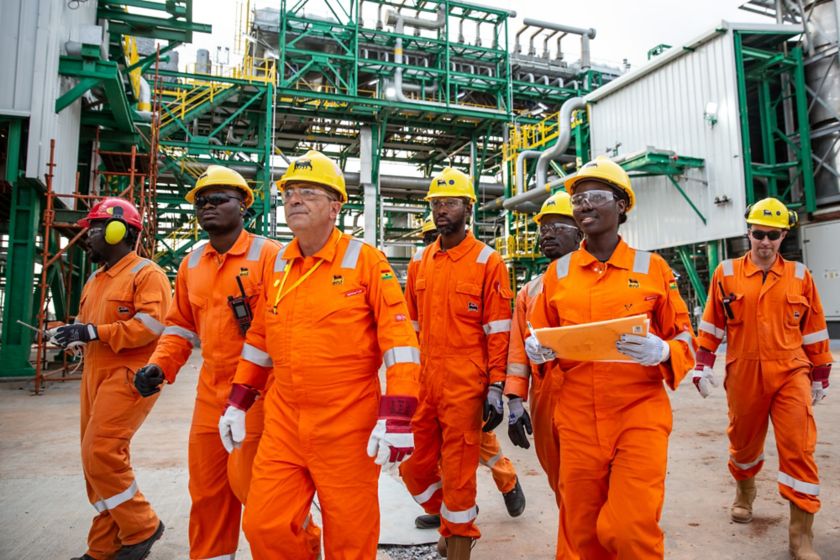
Le nostre persone al lavoro nell’impianto onshore del Ghana
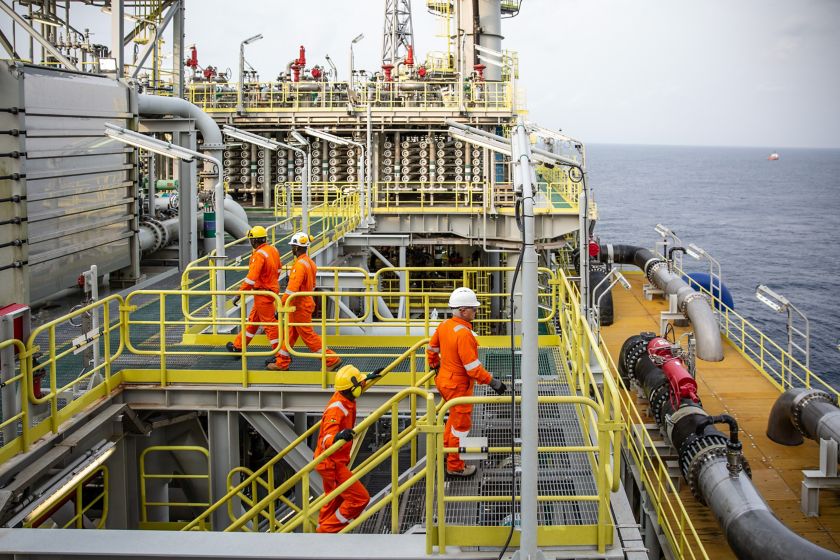
Team al lavoro sulla FPSO John Agyekum Kufuor
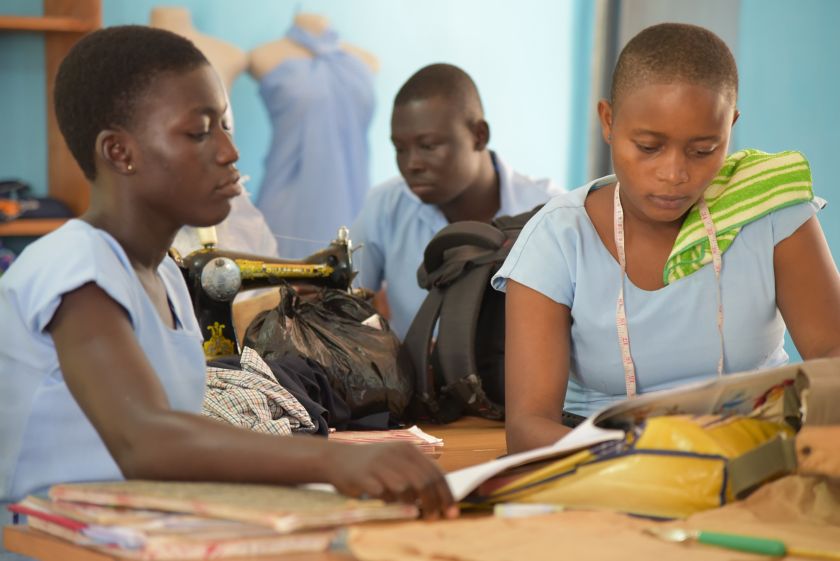
Beneficiari del progetto Livelihood Restoration Plan in aula
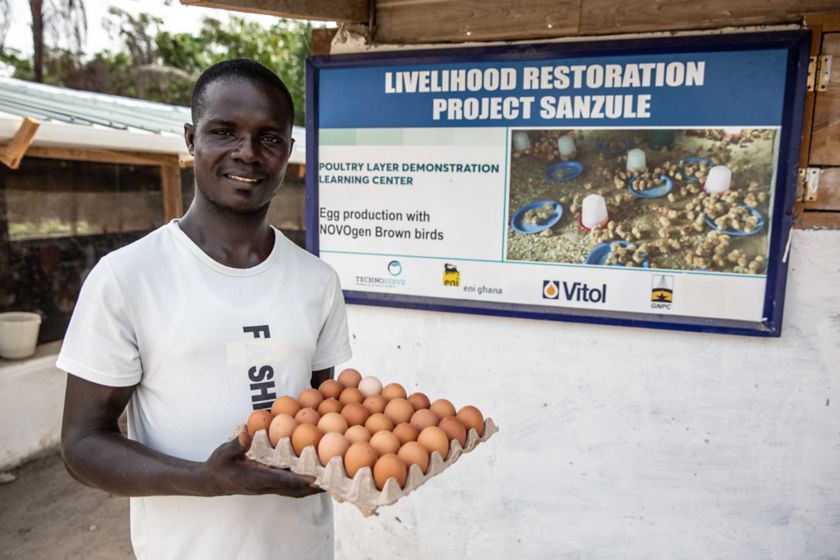
Uno dei beneficiari del progetto Livelihood Restoration Plan
produzione annuale di petrolio e condensati (barili)
produzione annuale di gas naturale
produzione annuale di idrocarburi (barili di petrolio equivalente)
investiti nel progetto Livelihood Restoration Plan
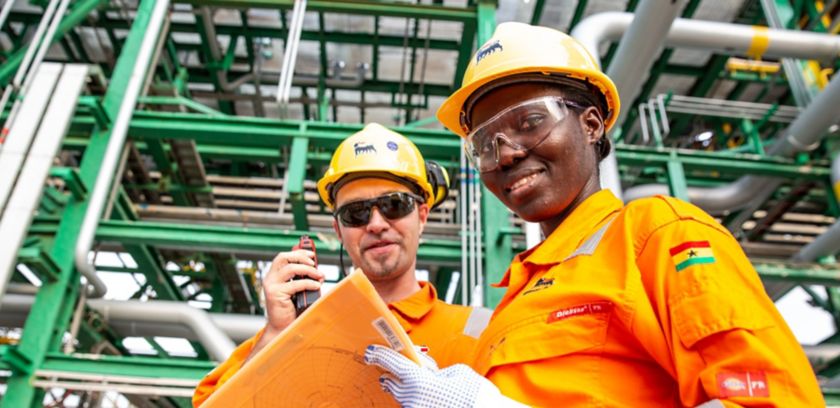
Il progetto integrato al largo della costa occidentale del Ghana, destinato al mercato domestico, ha iniziato la produzione in anticipo.
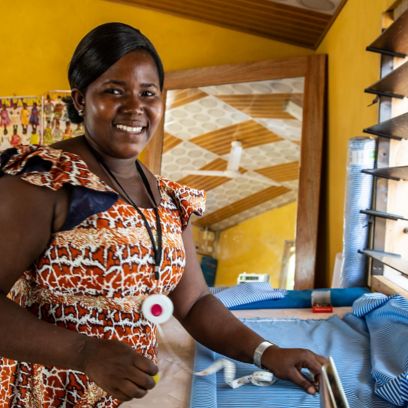
Nella Western Region e in zone limitrofe supportiamo le comunità per l’avvio di nuove attività sostenibili, a favore della crescita.
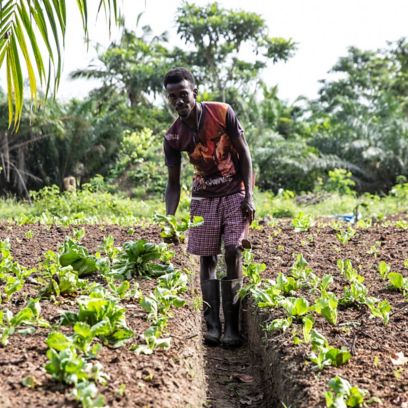
Il progetto ha facilitato l’accesso degli studenti al mercato del lavoro e alle iniziative di microcredito, per stimolare la crescita del settore agricolo.
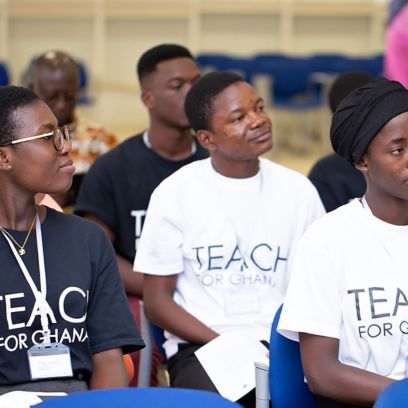
Selezioniamo laureati in scienze, arti, ingegneria, inglese e altre materie per affiancarli a supporto dei docenti di scuole elementari e medie.
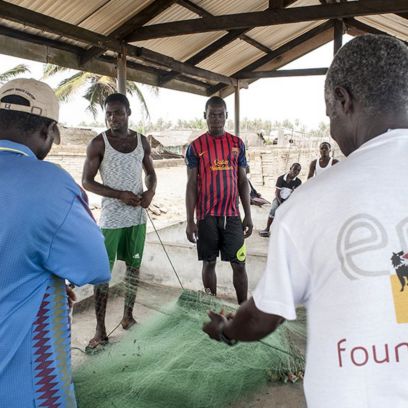
Bradley Tower Building
William Tubman Road Ridge
PMB KA 185 - Accra - Ghana
+233(0)302 761790 - +233(0)302 761786

Se desideri cambiare argomento, svuota la chat ed effettua una nuova richiesta per ottenere risultati più pertinenti.
Questa azione comporterà l'eliminazione di tutte le domande fatte durante la fase di navigazione.
Con questa azione cancellerai ogni ricerca effettuata durante questa sessione di navigazione.
Qui puoi trovare la lista di tutte le tue richieste.
Le risposte sono generate dall'intelligenza artificiale, pertanto potrebbero contenere imprecisioni. Leggi i termini e condizioni di utilizzo

EnergIA è uno strumento innovativo basato sulle capacità dell’intelligenza artificiale, che può aiutarti a navigare tra i contenuti di eni.com, trovando subito la risposta alle tue domande. EnergIA può effettuare una ricerca su un tema specifico, fornendo i dati più aggiornati disponibili, oppure può invitarti ad approfondire un argomento di tuo interesse. Inizia subito!
EnergIA è uno strumento innovativo basato sulle capacità dell’intelligenza artificiale, che può aiutarti a navigare tra i contenuti di eni.com, trovando subito la risposta alle tue domande. Inizia ora!
EnergIA è un sistema basato sull’Intelligenza Artificiale Generativa.
Grazie a questa tecnologia riusciamo a rispondere alle tue richieste interrogando i contenuti e i documenti più rilevanti presenti su eni.com. (N.B. Vengono presi in considerazione i documenti finanziari degli ultimi 12 mesi e i comunicati stampa degli ultimi 2 anni.)
Attraverso EnergIA puoi approfondire le tematiche di tuo interesse e avere una finestra in tempo reale sul mondo Eni.
Se desideri, invece, cercare uno specifico documento, comunicato stampa o news, utilizza il motore di ricerca tradizionale tramite icona della lente.
Come tutti i sistemi che sfruttano l’Intelligenza Artificiale Generativa, EnergIA potrebbe generare risposte inesatte o non aggiornate. Ti invitiamo sempre a consultare le fonti che il sistema indica come origine dell’informazione generata.
In alcuni casi, in assenza di una perfetta corrispondenza con la richiesta, il sistema cerca comunque di fornire una risposta.
Qualora dovessi riscontrare delle inesattezze nella risposta fornita, ti preghiamo di segnalarcelo tramite il feedback disponibile a fondo pagina: ci sarà molto utile per migliorare.
Dal momento che quanto elaborato dal sistema non rappresenta la posizione ufficiale di Eni, invitiamo gli stakeholder interessati a conoscere le posizioni della Società a rivolgersi ai propri contatti di riferimento: Ufficio Stampa per i giornalisti, Investor Relations per analisti e investitori, Segreteria Societaria per gli azionisti etc..
EnergIA riesce a comprendere domande poste in quasi tutte le lingue, ma preferiamo fornirti una risposta in inglese o in italiano, le due lingue disponibili su eni.com.
Se poni una domanda in lingua italiana, saranno consultati i contenuti presenti sul sito in lingua italiana. Se la poni in inglese o in qualsiasi altra lingua, saranno consultati i contenuti in lingua inglese. (N.B. La lingua che Eni utilizza per i documenti/contenuti di carattere finanziario è prevalentemente l’inglese.)
Nel caso in cui vengano formulate domande che violino i criteri di sicurezza impostati, il sistema non procederà con l'elaborazione della risposta. Infine, ti chiediamo di non inviare dati personali.
Utilizzando questo servizio, l’utente dichiara di aver letto e accettato i termini e condizioni di utilizzo.
Ricerca
EnergIA è un sistema basato sull’Intelligenza Artificiale Generativa.
Grazie a questa tecnologia riusciamo a rispondere alle tue richieste interrogando i contenuti e i documenti più rilevanti presenti su eni.com. (N.B. Vengono presi in considerazione i documenti finanziari degli ultimi 12 mesi e i comunicati stampa degli ultimi 2 anni.)
Attraverso EnergIA puoi approfondire le tematiche di tuo interesse e avere una finestra in tempo reale sul mondo Eni.
Se desideri, invece, cercare uno specifico documento, comunicato stampa o news, utilizza il motore di ricerca tradizionale tramite icona della lente.
Come tutti i sistemi che sfruttano l’Intelligenza Artificiale Generativa, EnergIA potrebbe generare risposte inesatte o non aggiornate. Ti invitiamo sempre a consultare le fonti che il sistema indica come origine dell’informazione generata.
In alcuni casi, in assenza di una perfetta corrispondenza con la richiesta, il sistema cerca comunque di fornire una risposta.
Qualora dovessi riscontrare delle inesattezze nella risposta fornita, ti preghiamo di segnalarcelo tramite il feedback disponibile a fondo pagina: ci sarà molto utile per migliorare.
Dal momento che quanto elaborato dal sistema non rappresenta la posizione ufficiale di Eni, invitiamo gli stakeholder interessati a conoscere le posizioni della Società a rivolgersi ai propri contatti di riferimento: Ufficio Stampa per i giornalisti, Investor Relations per analisti e investitori, Segreteria Societaria per gli azionisti etc..
EnergIA riesce a comprendere domande poste in quasi tutte le lingue, ma preferiamo fornirti una risposta in inglese o in italiano, le due lingue disponibili su eni.com.
Se poni una domanda in lingua italiana, saranno consultati i contenuti presenti sul sito in lingua italiana. Se la poni in inglese o in qualsiasi altra lingua, saranno consultati i contenuti in lingua inglese. (N.B. La lingua che Eni utilizza per i documenti/contenuti di carattere finanziario è prevalentemente l’inglese.)
Nel caso in cui vengano formulate domande che violino i criteri di sicurezza impostati, il sistema non procederà con l'elaborazione della risposta. Infine, ti chiediamo di non inviare dati personali.
Utilizzando questo servizio, l’utente dichiara di aver letto e accettato i termini e condizioni di utilizzo.
Una nuova finestra sul mondo Eni, a tua disposizione. EnergIA è uno strumento innovativo basato sulle capacità dell’intelligenza artificiale, che può aiutarti a navigare tra i contenuti di eni.com, trovando subito la risposta alle tue domande.

